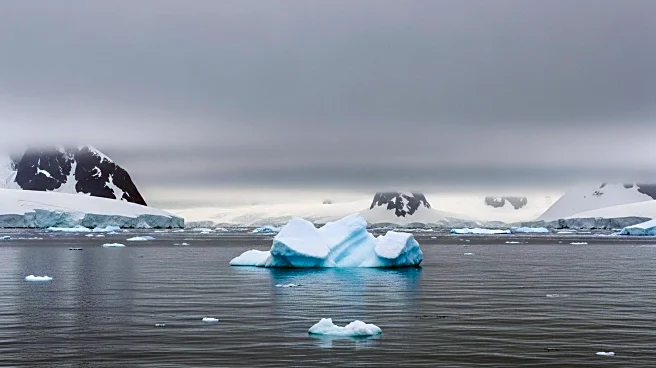What's Happening?
Recent research published in Nature highlights significant and rapid changes occurring in Antarctica, with the loss of sea ice over the past decade being a major concern. The study, led by climate scientist Nerilie Abram, reveals that these changes are interconnected and could lead to global consequences, including rising sea levels that threaten coastal cities worldwide. The loss of winter sea ice in Antarctica has been as severe over the last decade as the Arctic's loss over 46 years, indicating a shift in the region's stability. This decline in sea ice is causing a feedback loop that accelerates warming and further ice loss, potentially leading to irreversible changes in the Antarctic ecosystem.
Why It's Important?
The rapid changes in Antarctica have significant implications for global sea levels and climate stability. As sea ice diminishes, it exposes darker ocean waters that absorb more heat, exacerbating warming and ice melt. This process threatens the stability of ice shelves and sheets, which could lead to substantial sea-level rise. The potential collapse of the West Antarctic Ice Sheet alone could raise sea levels by over 10 feet, posing a threat to coastal communities and global political stability. The study underscores the urgency of reducing greenhouse gas emissions to mitigate these catastrophic changes.
What's Next?
Scientists are gathering more data to understand the full impact of these changes and model future scenarios. Immediate and substantial reductions in greenhouse gas emissions are necessary to prevent further destabilization of Antarctica's ice systems. The research community continues to monitor the situation closely, emphasizing the need for global cooperation to address climate change and its effects on polar regions.
Beyond the Headlines
The loss of sea ice not only affects global sea levels but also disrupts local ecosystems, including the habitats of emperor penguins and phytoplankton. These changes could have cascading effects on the food web and biodiversity in the region. The study highlights the interconnectedness of climate systems and the potential for widespread ecological impacts.









